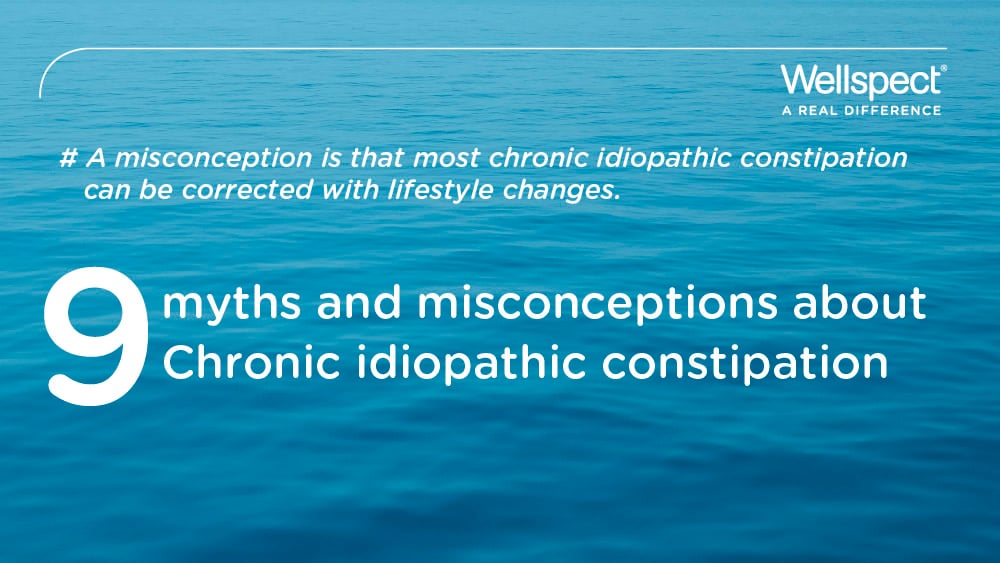Chronic idiopathic constipation, or functional constipation, is a frequent reason for seeking healthcare and referral of specialty care – despite new knowledge there is still confusion and many misconceptions regarding the condition, outcome and treatment.

In this article by Staller and Brooks, the authors highlight 9 common misconceptions or myths about chronic idiopathic constipation, also called functional constipation, with focus on diagnosis and treatment.
Misconception 1
Frequency of bowel movement is the most important criteria for establishing a diagnosis of chronic idiopathic constipation.
– There is a wide variation in normal frequency of bowel movement.
Misconception 2
Chronic idiopathic constipation and irritable bowel syndrome with constipation (IBS-C) are distinct conditions.
– It is the symptoms that are important for the patient, not the specific diagnosis.
Misconception 3.
Colonoscopy is required for the evaluation of chronic idiopathic constipation.
– Colonoscopy is required if any alarm features exist.
Misconception 4.
Chronic idiopathic constipation is due to delayed colonic transit.
– Most patients with chronic idiopathic constipation have a normal transit time.
Misconception 5.
All bloating is due to constipation.
– Some patients may have a mismatch between gut sensory perception and volume mediating reflexes or an overgrowth of methane producing organisms.
Misconception 6.
Most chronic idiopathic constipation can be corrected with lifestyle changes.
– Data suggest that few patients with chronic idiopathic constipation benefit from lifestyle changes, such as physical activity and increased fluid intake.
Misconception 7.
All fiber is created equal.
– Only 2 fibers have shown a positive effect on chronic idiopathic constipation.
Misconception 8.
A daily bowel movement is the goal of constipation treatment.
– It is a myth that a daily bowel movement is healthier than other frequencies.
Misconception 9.
Surgery is curative for chronic idiopathic constipation.
– Only a few, well-selected patients with chronic idiopathic constipation benefit from surgery.




